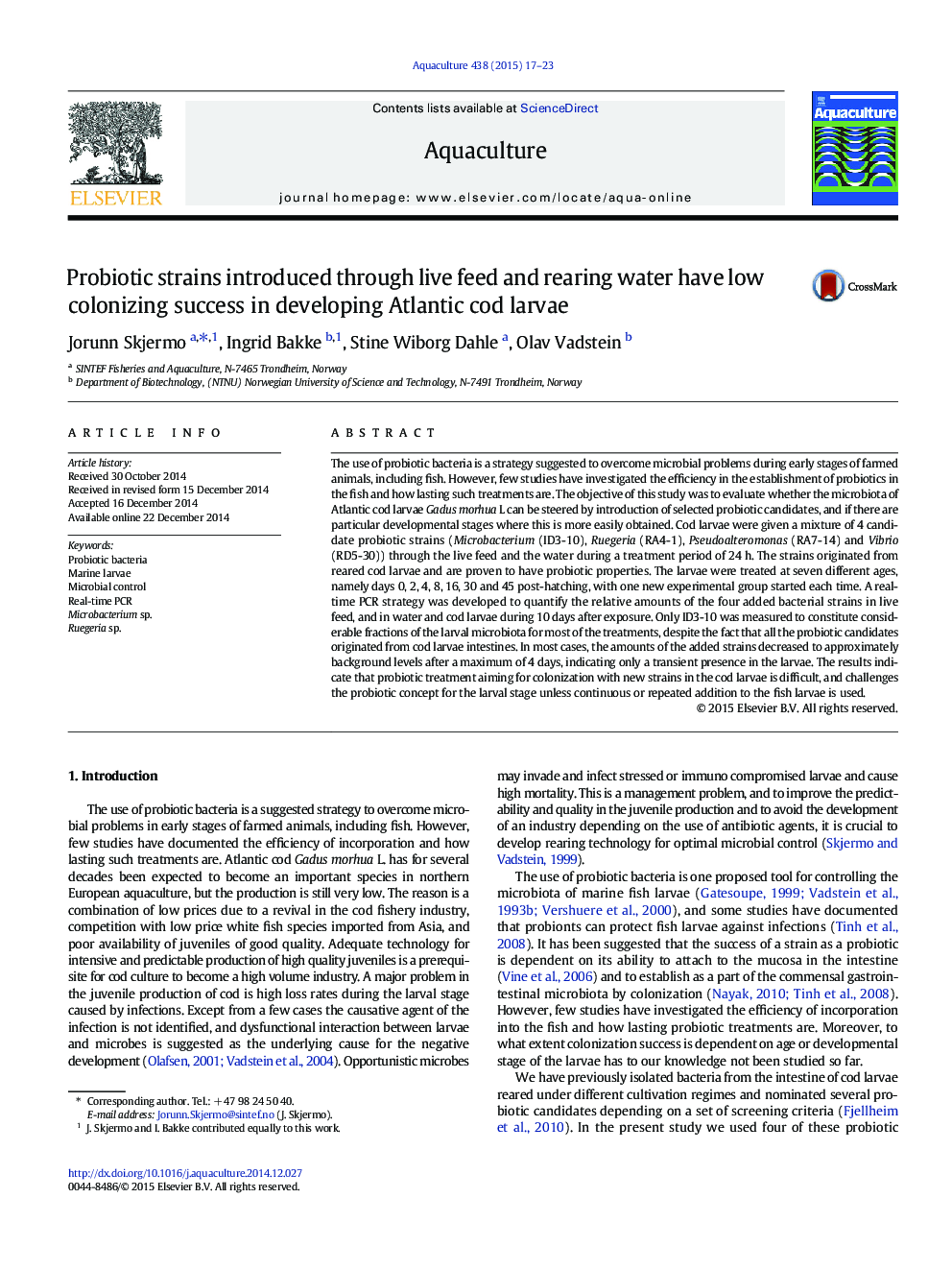| Article ID | Journal | Published Year | Pages | File Type |
|---|---|---|---|---|
| 2421638 | Aquaculture | 2015 | 7 Pages |
•Probiotic strains from cod larval intestines were only transiently present in larva after supply through water and live feed•Different timing of probiotic treatment of cod larvae did not improve colonization success•Out of four probiotic candidate strains only one (Microbacterium) was generally detected in substantial amounts in cod larvae
The use of probiotic bacteria is a strategy suggested to overcome microbial problems during early stages of farmed animals, including fish. However, few studies have investigated the efficiency in the establishment of probiotics in the fish and how lasting such treatments are. The objective of this study was to evaluate whether the microbiota of Atlantic cod larvae Gadus morhua L can be steered by introduction of selected probiotic candidates, and if there are particular developmental stages where this is more easily obtained. Cod larvae were given a mixture of 4 candidate probiotic strains (Microbacterium (ID3-10), Ruegeria (RA4-1), Pseudoalteromonas (RA7-14) and Vibrio (RD5-30)) through the live feed and the water during a treatment period of 24 h. The strains originated from reared cod larvae and are proven to have probiotic properties. The larvae were treated at seven different ages, namely days 0, 2, 4, 8, 16, 30 and 45 post-hatching, with one new experimental group started each time. A real-time PCR strategy was developed to quantify the relative amounts of the four added bacterial strains in live feed, and in water and cod larvae during 10 days after exposure. Only ID3-10 was measured to constitute considerable fractions of the larval microbiota for most of the treatments, despite the fact that all the probiotic candidates originated from cod larvae intestines. In most cases, the amounts of the added strains decreased to approximately background levels after a maximum of 4 days, indicating only a transient presence in the larvae. The results indicate that probiotic treatment aiming for colonization with new strains in the cod larvae is difficult, and challenges the probiotic concept for the larval stage unless continuous or repeated addition to the fish larvae is used.
